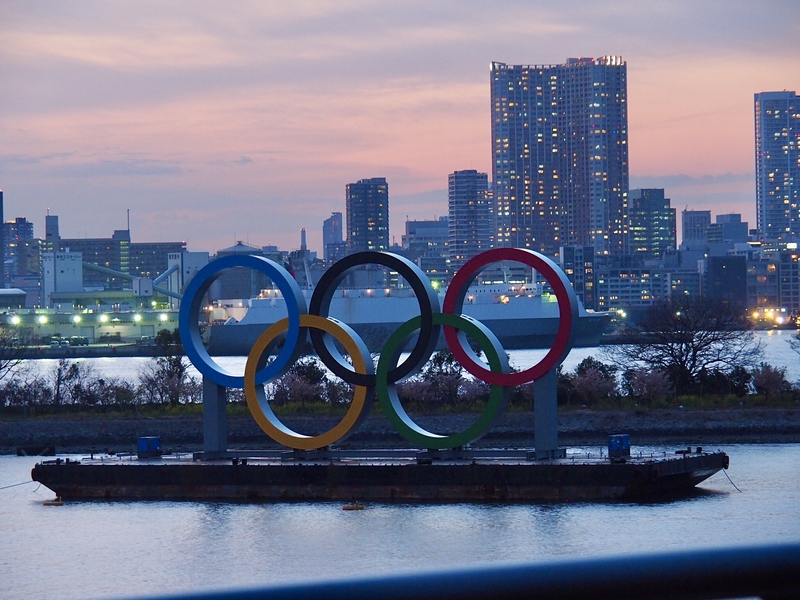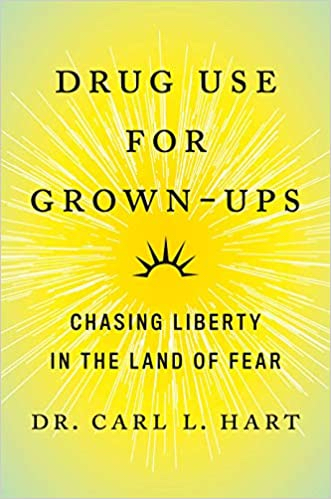Tokyo 2020-2021: Can These Games Get Any Weirder?

What would happen if they declared an Olympics and nobody came? We'll soon find out! Tweet

Highlights
The Japanese do not want to be invaded by hundreds of thousands of possible covid superspreaders—only 5 percent of the population is vaccinated.
But by the time the athletes march out of Olympic Stadium during the closing ceremonies, not a single seat will have been filled.
Seth Rogan: "If weed made you fast, I’d be FloJo.”
The policy, set by clueless authoritarians, is both pointless and needlessly cruel.
Start with the date. The logo says “Tokyo 2020,” but thanks to the coronavirus postponement, the Games will actually take place this year; all medals, tickets, souvenirs, apparel, and everything else will be imprinted with 2020. The record books will be a lie as the official scores will reflect 2020 instead of 2021. Which means the athletes are competing in the past.
The weirdness continues into the bleachers. The citizens of Japan overwhelmingly do not want their island nation invaded by a horde of hundreds of thousands of possible covid superspreaders—a mere 5 percent of the Japanese population has been vaccinated, blamed on atypical Japanese efficiency. But former Prime Minister Shinzo Abe, who resigned because he’s sick (irony?), and his successor Yoshihide Suga have rammed the Games down their nation’s unvaxxed throats because they’ve already spent more than $15 billion on Olympic infrastructure. The final cost could be as much as $26 billion.
But by the time the athletes march out of Olympic Stadium during the closing ceremonies, not a single seat will have been filled.
But by the time the athletes march out of Olympic Stadium during the closing ceremonies, not a single seat will have been filled. The stadia on which all that yen was spent will be empty; the decision was reached onJuly 7 that the Games will go on, but with no spectators. (We hope you bought travel insurance for those airline tickets to Japan, and good luck getting that ticket refund.) Officials relented to public pressure and medical advice and reversed their decree of a 10,000-spectator limit on events, which is OK because they weren’t going to be allowed to cheer anyway.
The scandal that broke in late June is the weirdest – and saddest – piece of all. This time it wasn’t the mass banning of Russian athletes for taking advantage of a singularly corrupt state-sponsored drug-testing scheme (see Rio, 2016); it wasn’t about East Germany force-feeding steroids to their champions (see Montreal, 1976); it wasn’t a Belarusian hammer-thrower who was ejected in London 2012 because of positive hormone samples discovered from Athens in 2004 (!) (Ivan Tsikhan is now chairman of the Belarus Athletic Federation, you can’t make this up); and it wasn’t the eventual jailing of U.S. sprinter Marion Jones for lying about how she won three gold and two bronze medals in Sydney in 2000.
No, this time it was just one woman for a one-time use of marijuana; the otherworldly suggestion being that of the thousands of athletes who’ve qualified for 2021 (nee 2020) Games, including more than 600 Americans, only Sha’Carri Richardson gets high.
Let’s just say, this would make the gifted 21-year-old sprinter with the vivid hair color, dangerously long acrylic nails and speed-defying eyelashes even more remarkable than we already knew she was.
After learning from a reporter (and how cruel was that?) that her biological mother died, Richardson, who’d been expected to add some much-need dazzle to NBC’s broadcasts, said she was “triggered” into self-medicating through a state of “emotional panic.” She got high (speculation is it was edibles) in Oregon to deal with her trauma.
THC is legal in Oregon, by the way. More to the point, as Seth Rogan has observed, “If weed made you fast, I’d be FloJo.”
As Seth Rogan observed, “If weed made you fast, I’d be FloJo.”
Indeed, Erik Altieri, executive director of the pot lobbying group NORML, emails PM that while it never made sense to punish athletes for extracurricular highs, in an era “when marijuana use is legally accepted in a growing number of U.S. states and around the world, it makes exactly zero sense…”
Nonetheless, when the World Anti-Doping Agency sprang a urine test and found the positive result, they wiped out Richarson’s trial times. Her month-long suspension was soon followed by an outright ban on any participation.
This is not merely weird, but edges into scary territory, for it is a wholesale indifference to violations of privacy laws.
Jeremy Mayer, an associate professor specializing in public policy and human rights at George Mason University’s Schar School of Policy and Government, calls the privacy intrusions imposed on Olympic athletes “the most invasive I know of.” While other fields require testing—airline pilots and intelligence officers among them—for Olympic athletes, he says, “the list of substances that they cannot take is by far the most extensive—and intrusive.” He adds, with considerable understatement: “The people running the Olympics are used to autonomous power.”
So call it weird or scary, that’s the bottom line: the policy, set by clueless authoritarians, is both pointless and needlessly cruel. And don’t look for it to change anytime soon.
All in all, it makes you pine for the good old days of Lebanese skier Jackie Chamoun, who, prior to the 2014 Sochi Games, offended her entire country (and delighted millions of others) when shots turned up online of her topless on the slopes. Now there was a scandal we could get behind!





